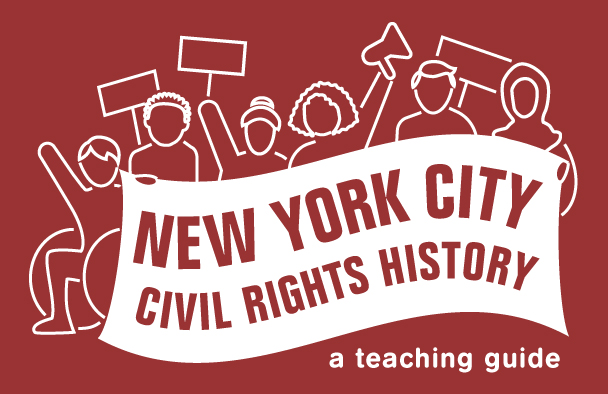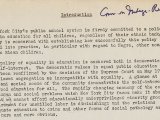You are here:
Mae Mallory and the “Harlem Nine”
Although the Brown v. Board of Education decision said that school segregation was unconstitutional, New York City’s schools remained segregated well after that 1954 decision. The Board of Education convened committees to study integration, and parents organized to demand action, but school officials minimized the problem or said it was beyond their control.
Read More
In 1957, a group of Harlem parents, including activist and mother of two Mae Mallory, sued the Board of Education. Then they organized a boycott to highlight segregation and inequality in their children’s junior high schools. They wanted to bring an end to overcrowding, unsafe and unclean conditions in school buildings, lack of teaching resources, and unprepared teachers. By boycotting, the parents put themselves and their families in danger. State law required that students attend school, and parents who kept their children out of school could be required to pay a fine or go to prison.
Through their protest the parents won different school placements for their own children, but many of the policies they opposed stayed in place. New Yorkers used boycotts to protest unequal education in the decades to come. Still, the Harlem Nine helped draw attention to the problem of racial segregation in New York’s schools. And a judge ruled that the Board of Education was responsible for, and should take action to address, segregation.1
-
Adina Back, “‘Exposing the ‘Whole Segregation Myth’: The Harlem Nine and New York City’s School Desegregation Battles,” in Freedom North: Black Freedom Struggles Outside the South, 1940-1980, ed. Jeanne Theoharis and Komozi Woodard (New York: Palgrave Macmillan, 2003), 65–92; Ashley D. Farmer, “‘All the Progress to Be Made Will Be Made by Maladjusted Negroes’: Mae Mallory, Black Women’s Activism, and the Making of the Black Radical Tradition,” Journal of Social History 53, no. 2 (October 15, 2018): 508–30, https://doi.org/10.1093/jsh/shy085; and Ashley Farmer, “Mae Mallory: Forgotten Black Power Intellectual,” Black Perspectives, June 3, 2016, https://www.aaihs.org/mae-mallory-forgotten-black-power-intellectual/. ↩︎







